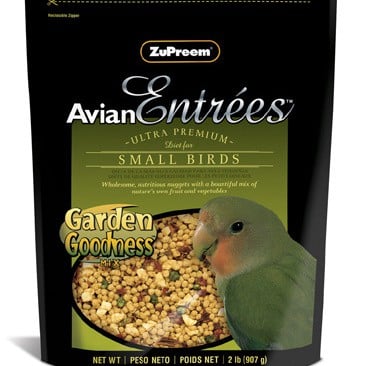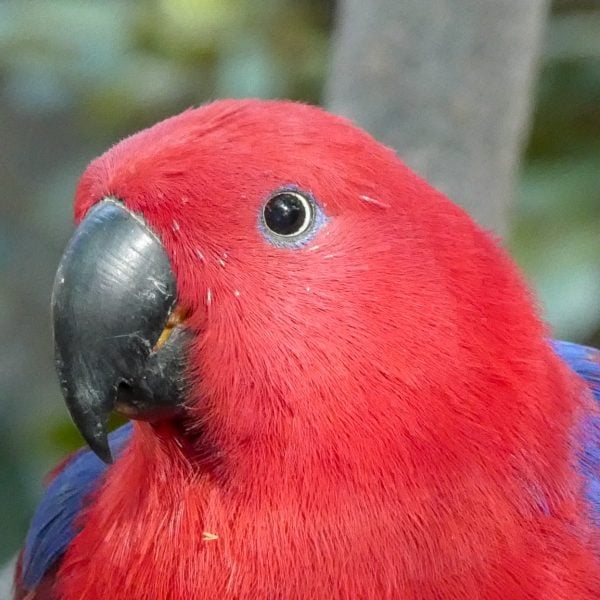Last Updated on by Mitch Rezman
If you’re a pet bird keeper, you’re probably aware of the growing trend of using homeopathic remedies to address behavioral issues with pet birds.
While these remedies may seem like a safe and natural solution to common bird problems, there are many potential consequences that bird owners need to consider before using them.
In this article, we’ll explore why homeopathic remedies are not safe for your pet bird, and what alternatives you can consider ensuring your bird stays happy and healthy.
Before moving forward, let’s back up
Birds have been around for about 100,000,000 years before humans somehow began to think they could improve all these species’ quality of living.
Mother Nature’s creativity never lets us down.
There are many examples of animal species in the wild that self-medicate to treat their own illnesses.
Here are a few examples:
- House finches: in Mexico line their bird nests with discarded cigarette butts because nicotine is a natural insecticide and will protect newborns from mites.
- Chimpanzees: When they feel sick, chimpanzees have been observed eating the leaves of the Aspilia plant, which has anti-inflammatory properties that help to relieve their symptoms.
- Monarch butterflies: These butterflies lay their eggs on milkweed plants, which contain toxins that protect the eggs and larvae from predators. The butterflies themselves also ingest these toxins, which make them taste bad to predators.
- Capuchin monkeys: These monkeys rub their fur with millipedes, which contain chemicals that repel mosquitoes and other biting insects. The monkeys also eat the millipedes, which are believed to have medicinal properties that help to treat parasites.
- Elephants: When they’re feeling ill, elephants will seek out the bark of certain trees, which contains a compound that has been shown to have antibacterial and anti-inflammatory properties.
These are just a few examples of the many ways that animals in the wild have evolved to self-medicate and treat their own illnesses.
It’s a fascinating area of study that helps us better understand the complexity of the natural world.
Them – “But as humans, we can improve on this, we do it for ourselves all the time.”
Me – “your not birds.”
The Risks of Homeopathic Remedies for Birds
The digestive system of birds is very different from that of mammals, and as such, any chemical ingested by birds may sit undigested in their crop for up to six hours.
Homeopathic advocates often use human dosage calculations to determine the appropriate amount to give to birds, without taking into account the bird’s smaller size, faster heart rate, and unique digestive system.
Find Windy City Veterinarian Approved Parrot Avian Vitamins Here
Additionally, homeopathic remedies are not regulated by any governmental agency, which means that it’s difficult to determine the quality and consistency of ingredients from one manufacturer to another.
Bird food manufacturers, who have the distribution channels to sell these remedies, don’t offer them for sale, and there’s no research on their safety or effectiveness on birds.
Alternatives to Homeopathic Remedies for Bird Health
Given the lack of research and regulation surrounding homeopathic remedies, bird owners are better off exploring other alternatives to address their bird’s health issues.
For example, last year, a Facebook group for holistic bird care offered dozens of homeopathic remedies for birds that get car sick.
However, a simpler solution is to not feed the bird for six hours before travel, which empties the bird’s crop and ensures a comfortable journey without the risk of regurgitation.
When it comes to bird behavior, there are other effective solutions that don’t rely on untested remedies.
Birds are intelligent animals and need to spend time seeking and foraging for food to stay mentally and physically healthy.
Bird owners can provide their pets with a variety of toys and foraging opportunities, which can help prevent destructive behaviors like feather plucking.
Conclusion
While it may seem like a good idea to use natural homeopathic remedies for pet birds, the risks outweigh the potential benefits.
The lack of research and regulation means that there’s no way to guarantee the safety or effectiveness of these remedies, and their potential to harm birds, in the long run, is too great to ignore.
Find Windy City Veterinarian Approved Parrot Avian Vitamins Here
Instead, bird owners should focus on proven methods to maintain their pet’s health and happiness, such as foraging opportunities and well-balanced diets. By doing so, you’ll be providing your pet bird with the best possible care and a long and happy life.
Written by Mitch Rezman
Approved by Catherine Tobsing
Author Profile
Latest entries
 Feeding Exotic BirdsDecember 29, 2025How to Switch or Convert Your Bird From Seeds to Pellets: Real-Life Case Studies and Practical Guidance
Feeding Exotic BirdsDecember 29, 2025How to Switch or Convert Your Bird From Seeds to Pellets: Real-Life Case Studies and Practical Guidance Feeding Exotic BirdsDecember 16, 2025A Practical, Budget-Smart Guide to Feeding Birds Well
Feeding Exotic BirdsDecember 16, 2025A Practical, Budget-Smart Guide to Feeding Birds Well Bird EnviornmentsDecember 7, 2025Understanding Budgie Cage Bar Orientation: Myths, Realities & Practical Solutions for Vertical-Bar Bird Cages
Bird EnviornmentsDecember 7, 2025Understanding Budgie Cage Bar Orientation: Myths, Realities & Practical Solutions for Vertical-Bar Bird Cages Feeding Exotic BirdsDecember 5, 2025How Dr. T.J. Lafeber Rewrote the Future of Pet Bird Nutrition
Feeding Exotic BirdsDecember 5, 2025How Dr. T.J. Lafeber Rewrote the Future of Pet Bird Nutrition



